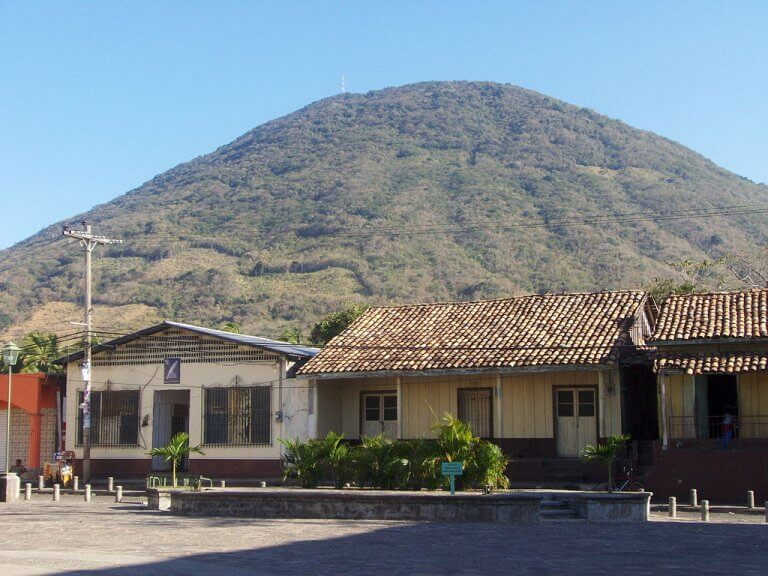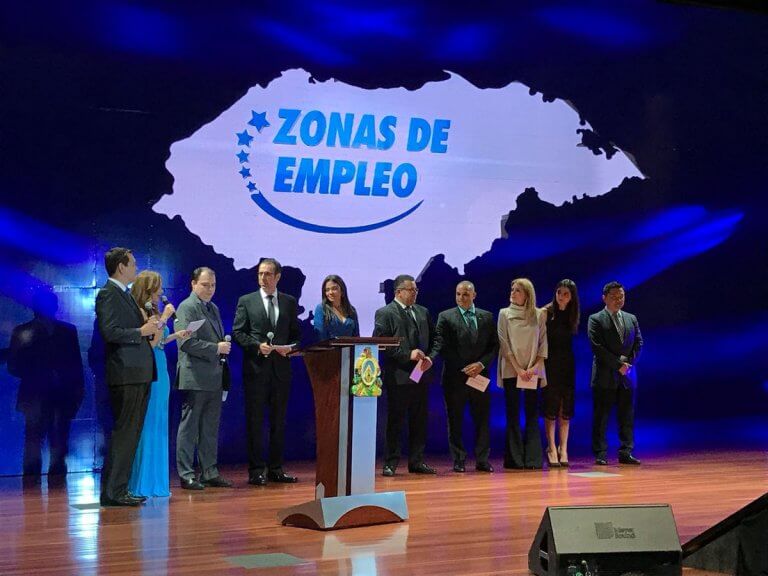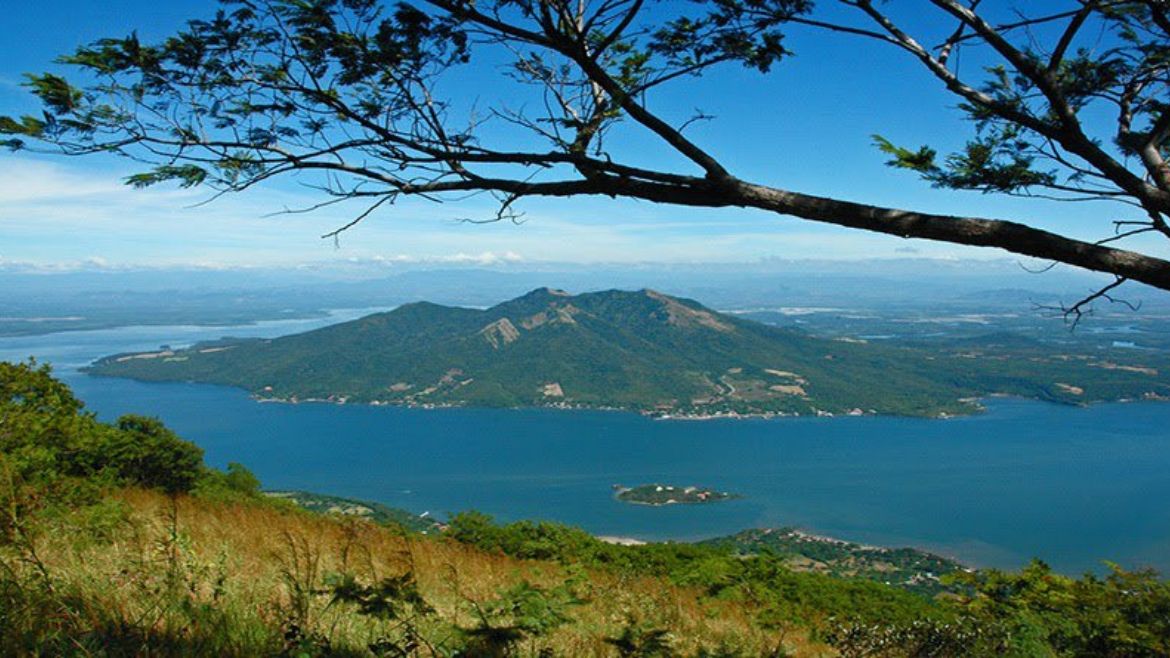In 2012, a project to turn Honduras into Latin America’s Hong Kong brought a glimmer of hope to a region mired in poverty, corruption, and crime. Investors and entrepreneurs were counting the days until they could do business or start a more promising life in one of the country’s regions scheduled for radical reform.
Nowadays, there are only traces of the original idea, the Employment and Development Economic Zones (ZEDEs), with the last press release going out in October 2017. The optimistic project for relatively autonomous and innovative jurisdictions, inspired by the charter-cities concept of this year’s Nobel Economics Prize winner, Paul Romer, has ended in empty promises and social conflict.
Honduran President Juan Orlando Hernández keeps heralding ZEDEs as one of his administration’s measures to improve the country’s business environment. Nevertheless, the project—yet to get off the ground—is far from delivering economic freedom and, instead, has produced secrecy and skepticism.
Inherent Corruption versus Autonomy
Scholars and dreamers have come and gone after realizing that the depths of Honduras’s problems make such a proposal unlikely to succeed. One of the first individuals to abandon ship, due to what he viewed as a lack of transparency, was precisely the project’s mentor and intellectual face, Paul Romer, who advised Honduran officials until 2014.
The initial excitement on social media has slowed to essentially nil in recent years, even in devoted forums. One of the chief intellectual proponents, the Startup Cities Institute in Guatemala City, is no longer online, and its final posts on social media date to 2015. Its American founder and director, Zachary Caceres, lost optimism and left Guatemala in early 2016. He is now a software consultant based in New York City.
Controversy also surrounds misunderstandings among advisors and authorities. The ZEDEs were supposed to be governed by the Committee for the Adoption of Best Practices (CAMP). The mostly foreign experts included free-market intellectuals Richard Rahn, a former Cato Institute fellow; tax-reform advocate Grover Norquist; and Barbara Kolm from the Austrian Economics Center.
Only five of the original 21 members remain on the CAMP, and those leaving have denounced government interference. Mark Klugmann, a former speechwriter for Ronald Reagan who used to serve on the board, told the Economist that ultimately what matters to investors is the rule of law rather than cheap labor and low regulation.
When Cronyism Trumps Property Rights
The most known ZEDE project is a proposed mega-port in Amapala, a coastal region with beaches and islands on the Pacific coast. In late 2017, South Korean experts prepared a feasibility study with recommendations for the Honduran government, but the venture has become a nightmare for locals who resist the government’s eviction orders.

Lorenzo Aguilera is a 59-year-old peasant who refuses to leave his home and abandon his livelihood. Although he does not have a property title, as is often the case in Honduras, Aguilera argues that he has invested money and effort there throughout the years. On his small ranch, he raises cattle, fish, and shrimp.
Aguilera is vulnerable to coercive officials who want to evict the families living in Amapala without proper compensation. The lack of land titles and a trustworthy state registry has been a systematic problem in Honduras, and government efforts to formalize land occupations are ongoing in other regions.
What is more alarming, however, is that almost one year since the alleged start of the ZEDE, no tangible developments can be seen in Amapala. In the meantime, Aguilera keeps struggling with the Honduran justice system and at least six military bases, installed by the government to bring the territory into line. Honduran lawyer Jorge Colindres argued in 2015 that such an ambitious project would take time, but the ZEDEs project has lived up to the expectations of neither Hondurans nor foreigners.
Santos Martín Ramírez, a 55-year-old fisherman, told the BBC that he has been hearing about the mega-port construction for a long time: “It is a promise often used during politically sensitive times, when elections are coming.”
Amapala Mayor Alberto Cruz thinks the idea of the ZEDEs could have potential, but his assessment is that Honduran authorities have failed to act proactively to make Honduras the next Hong Kong. His main concern is the project’s uncertainty, and he sees no guarantee of better opportunities for Honduran cities and Amapala’s 14,000 inhabitants.
Fergus Hodgson, a Latin America analyst and executive editor at Econ Americas, was one of the many foreigners who got starry-eyed and thought Honduras could become “some sort of libertarian dream.” He followed the project’s early developments and traveled to examine the country firsthand, but he got disappointed as he saw plenty of talk but no follow-through: “The unfortunate fact is that the ZEDEs, if they ever come into existence, will be low-tax zones for cronies.”
Free-Market Utopia Lost amid Malpractice
Colindres, who is also a libertarian activist, argues that—at least on paper—the ZEDE legal framework does promote free-enterprise ideals. He told Econ Americas that the law is supposed to prevent confiscatory taxation, guarantee the free flow of currency and goods, and ensure a fair self-governing system.
In a paper for the Center for Innovative Governance Research, Colindres discusses the legitimacy and democratic underpinnings of the ZEDEs. His analysis suggests that these jurisdictions, if successful, would spur innovation in democratic-governance rules.
In other words, decisionmakers within the ZEDEs “should make available democratic participation mechanisms to the residents of the model cities, as part of a general policy to comply with binding human-rights international law.” Moreover, the institutional design of each ZEDE would determine if investment and business opportunities were open to only multinationals or to entrepreneurs and individual investors as well.
Each ZEDE is supposed to have a “technical secretary” in charge of administrative tasks and developing policies and guidelines, which then are subject to the approval of an advisory board. Therefore, the extent to which these jurisdictions provide equality of opportunity and promote wealth creation depends on their institutional design, according to Colindres.
The ZEDEs, however, face two major challenges to their implementation: (1) the usual lack of rule of law and separation of powers and (2) insufficient public information.
Notorious institutional weaknesses in the Honduran political system undermine the project’s success. The National Commission for Human Rights (Conadeh) has identified that cronyism and politicization are the major hurdles to credible institutions. The 2018 Institutional Quality Index ranks Honduras 132 out of 191 nations, and the Corruption Perception Index ranks it 135 out of 180.
“ZEDEs could provide sustainable economic growth to the Central-American country, as long as leaders solve their political confrontations and focus on their accurate adoption,” Leonard Quinde, an Ecuadorian analyst with the Guayaquil Industries Chamber, told Econ Americas. He proposed reforms to Ecuadorian law for special economic zones based on the Honduran model.
Mark Lutter, the executive director of the Center for Innovative Governance Research, opines that special economic zones increase corporate efficiency but do not necessarily provide benefits to the economy. If pursuing the second, he believes the most appropriate approach is to build a whole charter city to ensure wealth creation.
Lutter adds that there is a low bar for success: “[It] would be a success if [officials] could implement Mexican or Salvadoran institutions, much less American institutions: El Salvador’s per capita income is 50 [percent] greater than that of Honduras.”
The second major problem for the project is the absence of available data. Colindres explains “the government is the first to breed distrust, not only from the population but from other potential investors, given the lack of transparency regarding … economic incentives for private businesses, such as concessions, tax advantages, and access to special regimes.”
Illegitimacy also keeps growing around the model cities, especially since Romer left the project. Therefore, to improve the image of the ZEDEs and ensure success, Colindres believes that the government “should have a solid approach to disclose any information related to ZEDE requirements, processes, and approval criteria.”
Econ Americas reached out to more Hondurans for their perspectives on the current status of the ZEDES, including Students for Liberty Honduras and Eléutera, a classical-liberal think tank based in San Pedro Sula with particular interest in the ZEDEs project. However, all chose not to comment, perhaps given vested interests or the lack of clear information even among local policy specialists.
Alex Chaufen, managing director at the Acton Institute and a former CAMP member, also avoided making a comment on such a troubled project and suggested to analyze the progress of the approved ventures. The information about them, however, is scarce.
The ZEDEs website only has the basic information about the original idea. It does not include a register about the ongoing concessions, and the latest press release is more than two years old. Econ Americas requested more information about those ventures in November 2017 by sending an email to the contact address of the website. The answer was that the data was still confidential, but we asked them again a week ago and received no response.

Local media have had few developments to report lately, since most of the latest coverage occurred in November 2017. Back then, President Juan Orlando Hernández announced the first companies to invest in the ZEDEs and promised that in total they would create more than 80,000 jobs.
Coincidentally, the presidential election was held a few weeks later. Hernández got himself reelected thanks to a controversial Supreme Court ruling that declared the constitutional prohibition against presidential reelections… unconstitutional.
Honduras: Her Own Worst Enemy
Porfirio Lobo, the Honduran president from 2010 to 2014, wanted to build ZEDEs in uninhabited parts of the country. However, to pass the law that created them, an amendment to the constitution was necessary. Ironically, the main problems with the ZEDEs have been those that Lobo promised to tackle with them: the lack of property rights and the incessant corruption.
Over the years, these and other institutional and political barriers have stalled the project’s progress. The continuation of the embattled ZEDEs depends on the whim of the gatekeepers and the administration in office. Disapproval from authorities and lack of confidence on the project could be as detrimental for ZEDEs as the lack of transparency currently is.
The failure of Honduran charter cities is another unfortunate story of projects marketed as free enterprise that in the end benefit friends in power. As Argentina’s 1990s privatization experience has shown, these processes require planning, close monitoring, and a resolute commitment to transparency to ensure success and not backfire. The transition stage, when officials have enormous power to influence outcomes and deliver favoritism, is ripe for abuse.
Other nations are exploring similar plans to create autonomous zones that could actually bring economic progress and prosperity. El Salvador, Rwanda, Guatemala, and India—to name a few—should learn from the Honduran experience and avoid the pitfalls.
Charter cities remain a promising idea and should not be abandoned due to one bad implementation. Their potential to attract investment and promote innovation merits further experimentation throughout the world, including Honduras.
The current caravan of migrants shows that the region desperately needs economic opportunities. If implemented, a charter city with solid institutions does have the potential to bring prosperity and offer an alternative to mass migration.




